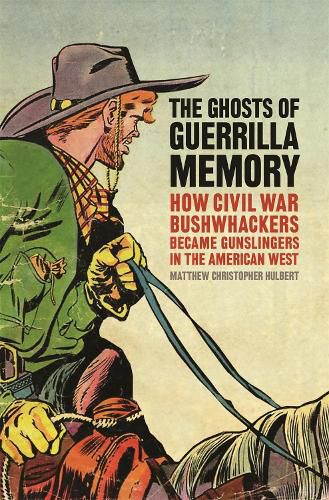Readings Newsletter
Become a Readings Member to make your shopping experience even easier.
Sign in or sign up for free!
You’re not far away from qualifying for FREE standard shipping within Australia
You’ve qualified for FREE standard shipping within Australia
The cart is loading…






The Civil War tends to be remembered as a vast sequence of battles, with a turning point at Gettysburg and a culmination at Appomattox. But in the guerrilla theater, the conflict was a vast sequence of home invasions, local traumas, and social degeneration that did not necessarily end in 1865. This book chronicles the history of guerrilla memory, the collision of the Civil War memory industry with the somber realities of irregular warfare in the borderlands of Missouri and Kansas.
In the first accounting of its kind, Matthew Christopher Hulbert’s book analyses the cultural politics behind how Americans have remembered, misremembered, and re-remembered guerrilla warfare in political rhetoric, historical scholarship, literature, and lm and at reunions and on the stage. By probing how memories of the guerrilla war were intentionally designed, created, silenced, updated, and even destroyed, Hulbert ultimately reveals a continent-wide story in which Confederate bushwhackers-pariahs of the eastern struggle over slavery-were transformed into the vanguards of American imperialism in the West.
$9.00 standard shipping within Australia
FREE standard shipping within Australia for orders over $100.00
Express & International shipping calculated at checkout
The Civil War tends to be remembered as a vast sequence of battles, with a turning point at Gettysburg and a culmination at Appomattox. But in the guerrilla theater, the conflict was a vast sequence of home invasions, local traumas, and social degeneration that did not necessarily end in 1865. This book chronicles the history of guerrilla memory, the collision of the Civil War memory industry with the somber realities of irregular warfare in the borderlands of Missouri and Kansas.
In the first accounting of its kind, Matthew Christopher Hulbert’s book analyses the cultural politics behind how Americans have remembered, misremembered, and re-remembered guerrilla warfare in political rhetoric, historical scholarship, literature, and lm and at reunions and on the stage. By probing how memories of the guerrilla war were intentionally designed, created, silenced, updated, and even destroyed, Hulbert ultimately reveals a continent-wide story in which Confederate bushwhackers-pariahs of the eastern struggle over slavery-were transformed into the vanguards of American imperialism in the West.